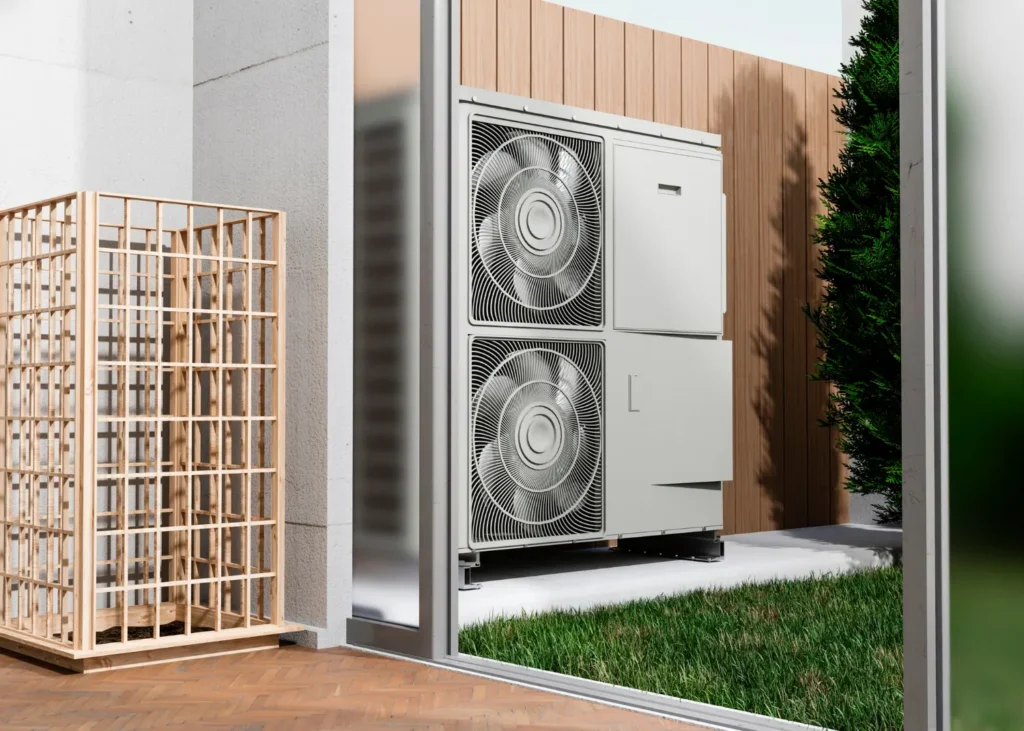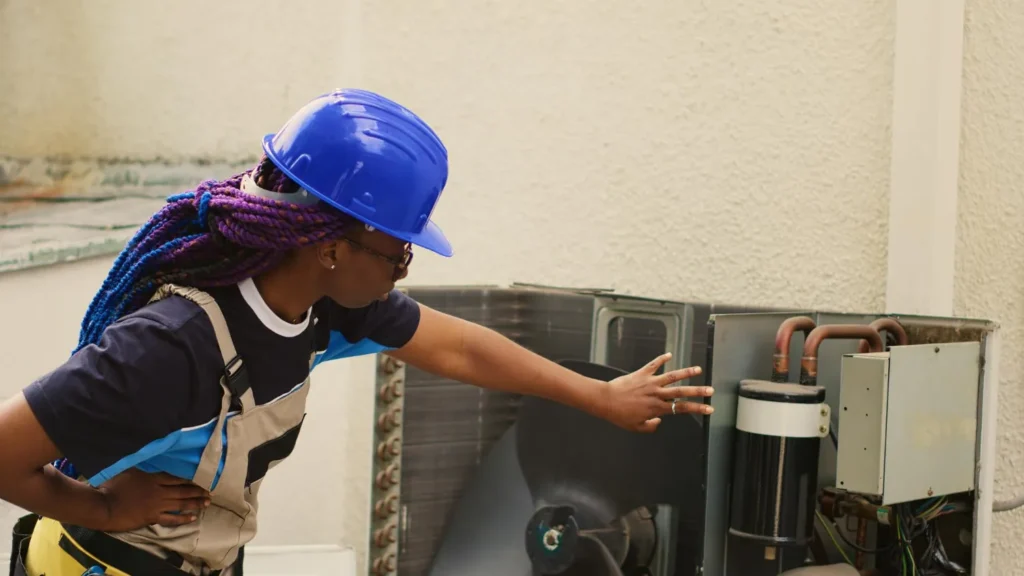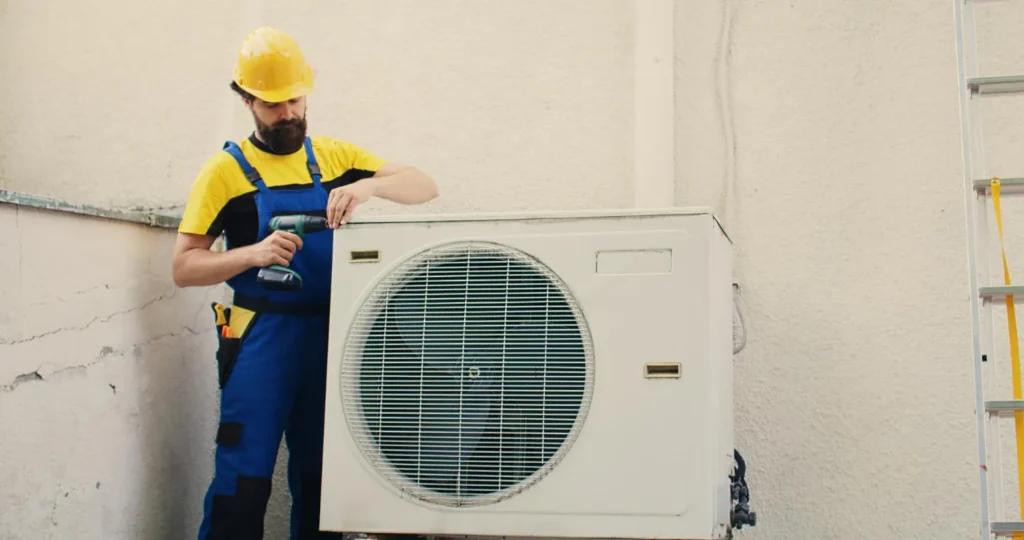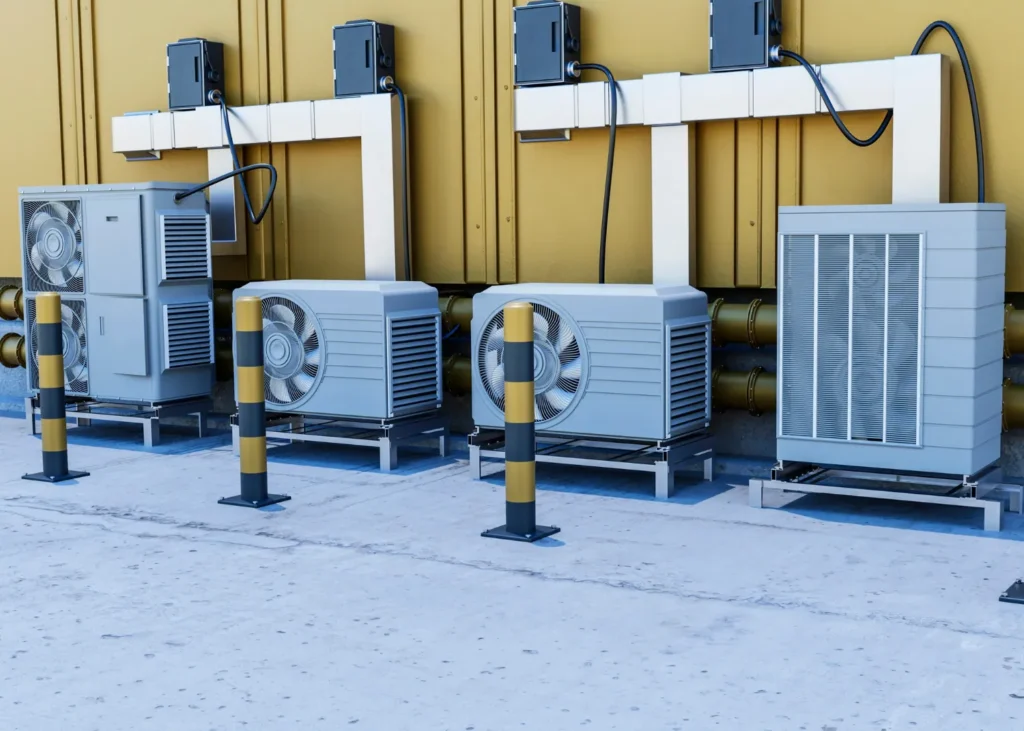In the pursuit of comfort and efficiency, your air conditioning system plays a pivotal role in your home or business operations. Whether cooling your living space during sweltering summers or maintaining the right temperature for business productivity, understanding the mechanics, maintenance, and management of your AC system is crucial. This guide delves deep into everything from system types and installation to troubleshooting and the future of air conditioning technology. Armed with this knowledge, you can enhance the longevity of your system and optimize its performance, ensuring comfort without compromising on cost-efficiency.
Exploring AC System Types: Finding Your Ideal Match

Understanding the different types available is key to making an informed choice that fits your specific needs when selecting an air conditioning system. Whether for residential comfort or commercial efficiency, each type of AC system offers unique benefits and challenges. This section will guide you through the various systems, helping you identify which will best serve your environment and lifestyle.
Central to Portable AC Units
When it comes to air conditioning systems, the variety can be overwhelming. Central air conditioners are the most common for residential and large commercial spaces, offering efficient whole-house cooling. For smaller spaces or where ductwork is impractical, ductless mini-splits provide a versatile alternative, requiring just a tiny wall hole to connect indoor unit and outdoor unit. Portable air conditioning units and window ACs offer flexibility and a lower upfront cost, which makes them ideal for temporary or seasonal use. Understanding the specifics of each system helps you make an informed decision tailored to your needs and space constraints.
Commercial and Residential AC Systems
The choice between commercial and residential Air conditioner systems hinges on several factors, including scale, demand, and operational environment. Commercial systems are generally more robust and designed to handle more prominent spaces and more complex cooling needs with features like zoning and VRF/VRV systems. Residential units prioritize energy saver, cost-effectiveness, and quieter operation. For homeowners and business owners alike, matching the system to your specific demands ensures both performance and efficiency.
Deep Dive into AC System Components
To truly understand how your AC system maintains your comfort, it’s essential to know about its main components and their functions. This part of the guide will focus on the integral parts of the air conditioning system, such as the compressor, evaporator, condenser, and more, detailing how each contributes to the overall operation and efficiency of the system.
The Compressor
The compressor is the heart of any air conditioning system. It is responsible for moving refrigerant between the evaporator and condenser coils. Its performance directly influences the system’s efficiency and longevity, making it a critical focus for both maintenance and troubleshooting.
Evaporator and Condenser Coils
Evaporator coil and condenser coils play crucial roles in the heat exchange process, which is vital for cooling and dehumidifying your space. Keeping these coils clean and free from obstructions is essential for maintaining peak performance and preventing common issues like refrigerant leaks and inadequate cooling.
Air Handling Unit Matters
The air handler manages the circulation of air throughout your system, influencing overall comfort and energy efficiency. Proper airflow management ensures even cooling, reduces strain on the system, and improves indoor air quality by effectively distributing filtered air.
Thermostats
Modern thermostats offer unprecedented control over indoor climates. Programmable and smart models allow for adjustments from anywhere, optimizing comfort and energy use. An accurately calibrated thermostat can significantly enhance system efficiency, reducing unnecessary cooling and heating cycles.
Refrigerants
Refrigerants are crucial for the air conditioning process, absorbing heat from the indoors and releasing it outdoors. The shift from Freon (R-22) to R-410A in newer models due to environmental regulations highlights the need for systems to use sustainable and efficient refrigerants.
Operational Mechanics of AC Systems
The efficiency of an AC system lies in its operational mechanics. This section will demystify how your HVAC Systems uses refrigeration to cool your home or business, focusing on the refrigeration cycle and other vital processes. Understanding these mechanics can help you better maintain and optimize your system’s performance.
Refrigeration Cycle
Understanding the refrigeration cycle—compression, condensation, expansion, and evaporation—is critical to grasping how your AC manipulates refrigerant to cool your home. This cycle is the backbone of all AC operations, and any disruption in the cycle can lead to system inefficiencies or failures.
Airflow
Tailoring airflow to suit different environments is crucial for maximizing AC efficiency. Whether it’s adjusting air handlers or recalibrating system settings, optimizing airflow can significantly reduce energy consumption while improving comfort levels across various spaces.
AC Installation: What Every Owner Should Know

Proper sizing of your AC unit is essential for efficient operation. An oversized or undersized unit can lead to increased wear and tear, higher energy costs, and reduced comfort. Professional HVAC system assessments help determine the optimal size based on factors like square footage, window orientation, insulation levels, and local climate conditions.
Effective installation of an AC system extends beyond simple placement and setup. It involves strategic planning regarding location, ductwork integrity, and system testing to ensure optimal performance from day one. Following industry best practices during installation can prevent future issues and downtime, saving costs and hassle in the long run.
The cost and time involved in installing an AC system vary widely based on the type of system, the complexity of the installation, and local labor rates. Transparent communication with your installer about costs and timelines can help manage expectations and ensure a smooth installation process.
AC Maintenance: Ensuring Longevity and Efficiency
Regular maintenance is crucial for keeping your AC system running at its best. This segment will provide essential tips and strategies for maintaining your air conditioner, emphasizing the importance of routine checks and the impact of maintenance on your system’s longevity and energy efficiency.
Essential Maintenance Tips for Optimal AC Performance
Regular maintenance, such as cleaning or replacing filters, checking refrigerant levels, and inspecting electrical connections, is crucial for maintaining optimal AC performance. These simple steps can prevent more significant issues, extend the lifespan of your system, and ensure it runs efficiently.
Professional vs. DIY AC Maintenance: What’s Best for You?
While basic AC maintenance tasks can often be handled DIY, more complex issues like refrigerant leaks or electrical problems require professional expertise. Understanding when to call in a professional can save you time and protect your system from potential damage.
Importance of Regular Filter Changes in AC Systems
Regular filter changes are one of the simplest yet most effective ways to maintain your AC’s efficiency and protect indoor air quality. Clogged or dirty filters can lead to a host of problems, from reduced air flow and system strain to increased energy usage and reduced air quality.
Troubleshooting and AC Repair: Keeping Your System at Peak Performance
Even with diligent maintenance, AC systems can encounter problems. This section will cover common issues that might arise with your air conditioner, offering troubleshooting tips and advice on when and how to seek professional repair services. Understanding these common faults will help you quickly address problems and restore system functionality.
Common AC Issues: Leaks, Noises, and Performance Drops
Familiarity with common AC issues like refrigerant leaks, unusual noises, or performance drops can help you diagnose problems early and address them before they escalate. Identifying these symptoms early can significantly reduce repair costs and system downtime.
Recognizing When to Call for Professional AC Repair
While some AC issues can be resolved with simple fixes, others require the expertise of a professional. Knowing the signs that indicate a need for professional intervention can prevent minor issues from becoming major, costly repairs.
Simple Fixes for Minor AC Problems
Many minor AC issues, such as unclogging the drainage line or resetting the thermostat, can be resolved without professional help. Learning these simple fixes can save time and money and keep your system running smoothly with minimal disruption.
Strategies for Enhanced AC Energy Efficiency

Adopting energy-saving practices, such as setting appropriate temperatures, using ceiling fans, and ensuring proper insulation, can significantly reduce your AC’s energy consumption and lower your utility bills.
High-efficiency AC models, often ENERGY STAR certified, can offer significant energy savings over traditional models. These units are designed to use less energy while providing superior cooling, making them a wise investment for cost-conscious homeowners and businesses.
ENERGY STAR-certified AC units reduce your environmental footprint, offer improved performance, and lower utility bills. Investing in these units can provide long-term savings and contribute to a more sustainable future.
Financial Insights: Investing in Your AC System
Investing in an efficient AC system can yield significant long-term savings. Efficient systems use less energy, reduce wear and tear, and require fewer repairs, all of which contribute to lower operational costs over the lifespan of the system.
AC systems that are modern and energy-efficient can increase property values. For homeowners planning to sell, a well-maintained AC system can make a property more attractive to potential buyers, potentially speeding up the sale and increasing the sale price.
Many local governments and utility companies offer rebates and incentives for homeowners and businesses that invest in energy-efficient AC systems. These programs can reduce the upfront cost of upgrades, making high-efficiency systems more accessible.
Health and Safety Protocols for AC Systems
AC systems play a crucial role in maintaining indoor air quality.
Regular maintenance and the use of high-quality filters can help remove pollutants and allergens from the air, contributing to a healthier living and working environment.
Proper AC maintenance and humidity control are essential in preventing mold growth and reducing allergens.
Ensuring that your AC system is functioning correctly can help mitigate these health risks, providing a safer and more comfortable indoor environment.
Maintaining healthy ventilation is crucial, especially during times of health concerns, such as flu seasons or pandemics.
AC systems can help circulate and filter air, reducing the presence of airborne pathogens and promoting a healthier indoor atmosphere.
Future Trends in Air Conditioning Technology

The integration of intelligent technology in AC systems is transforming how we manage indoor climates.
Smart ACs, which can be controlled via smartphones and feature automatic adjustments, offer enhanced convenience and efficiency.
As environmental regulations tighten, the shift towards eco-friendly refrigerants is becoming crucial.
These refrigerants offer a reduced environmental impact without compromising efficiency and are becoming a standard in new AC models.
Artificial intelligence is revolutionizing AC maintenance, with systems now capable of predicting failures before they occur.
This proactive approach can extend the life of AC units, reduce emergency repairs, and lower maintenance costs.
Navigating AC Installation Regulations and Standards
Complying with local building codes is essential when installing new AC systems for Richmond, TX, residents and businesses.
Understanding these regulations can ensure that your installation is legal and optimized for safety and performance.
National and state regulations often dictate the minimum efficiency standards and safety requirements for AC installations.
Staying informed about these rules can help you make decisions that are compliant and environmentally responsible.
Selecting the Best AC Repair and Service Providers
Choosing the right service provider is crucial for ensuring quality repairs and maintenance. When selecting an AC repair and service provider, several key factors contribute to reliable and effective service. First, look for providers with solid reputations in your community. Online reviews, testimonials, and word-of-mouth recommendations can offer valuable insights into the provider’s reliability and quality of service.
Additionally, verify that the service providers hold all necessary certifications and licenses to perform HVAC work in your area. Certified technicians are trained to understand the latest AC technology and adhere to industry standards, ensuring that your system receives the best possible care.
A commitment to customer service is another critical element. Reliable service providers prioritize customer satisfaction and are prompt, courteous, and transparent about their services and pricing. They should offer clear communication, explaining what repairs are necessary and why, and provide a detailed quote before beginning any work.
Finally, consider the provider’s availability for emergency services and ongoing maintenance contracts. Providers who offer comprehensive maintenance programs and 24/7 emergency response are invaluable, especially during peak seasons when you rely most on your AC system. This proactive approach can extend the life of your system, reduce emergency repairs, and ensure continuous comfort in your home or business.
Conclusion – Air Conditioning System
In conclusion, effectively managing your AC system requires a comprehensive understanding of its components, maintenance needs, and the latest technology trends.
By investing in regular maintenance, staying informed about new technologies, and choosing the right service providers, you can ensure that your AC system operates at peak efficiency, providing comfort and savings for years to come.
We encourage all homeowners and business owners to take proactive steps in managing their AC systems.
For a detailed assessment and personalized advice, don’t hesitate to contact a professional AC technician today.
This comprehensive guide covers every aspect of understanding, installing, and maintaining AC systems. It is tailored to both new buyers and those looking to improve their existing setups.
FAQs Related to Air Conditioning Systems
What are the most common types of AC systems for residential use?
The most common types of AC systems for residential use include central air conditioners, ductless mini-split-system air conditioner, window units, and portable air conditioners. Each has its benefits depending on the size of the area to be cooled and the specific needs of the household.
How often should I have my AC system serviced by a professional?
It is recommended that your AC system be serviced by a professional at least once a year. This routine check-up typically involves cleaning the system, checking for any issues, and ensuring it is running efficiently.
What are the signs that my AC system needs repair?
Signs that your AC system may need repair include unusual noises, insufficient cooling, higher than usual energy bills, and the system turning on and off more frequently than usual.
What is the average lifespan of an AC system?
The average lifespan of an AC system is around 15 to 20 years. However, this can vary based on the model, usage patterns, and how well the system is maintained.
How can I improve the efficiency of my AC system?
Improving the efficiency of your AC system can be achieved by regular maintenance, replacing air filters regularly, ensuring your home comfort is well insulated, and using a programmable thermostat to better control temperatures.
What is the importance of the refrigerant in an AC system?
The refrigerant is crucial as it absorbs and releases heat during the refrigeration cycle, effectively cooling your home. Using the correct type and amount of refrigerant is essential for your AC system’s efficiency and performance.
What should I consider when choosing an AC repair and service provider?
When choosing an AC repair and service provider, consider their reputation, certifications, customer service, and whether they offer a warranty on their work. Also, check for reviews and ask for recommendations from friends or family.
Can I perform any AC maintenance tasks myself?
Yes, homeowners can perform some maintenance tasks, such as changing air filters and cleaning around the unit. However, more complex tasks like checking refrigerant levels or electrical components should be handled by professionals.
What is a SEER rating, and why is it important?
SEER stands for Seasonal Energy Efficiency Ratio and measures the air conditioner’s efficiency over a typical cooling season. A higher SEER rating means greater energy efficiency, leading to lower electricity bills and a reduced environmental impact.
How does proper airflow affect my AC system?
Proper airflow is vital for the efficiency of your AC system. It ensures even cooling throughout the space, helps maintain consistent temperature, and reduces strain on the system, prolonging its life and preventing common problems like ice buildup on the coils.
